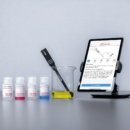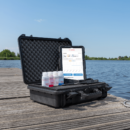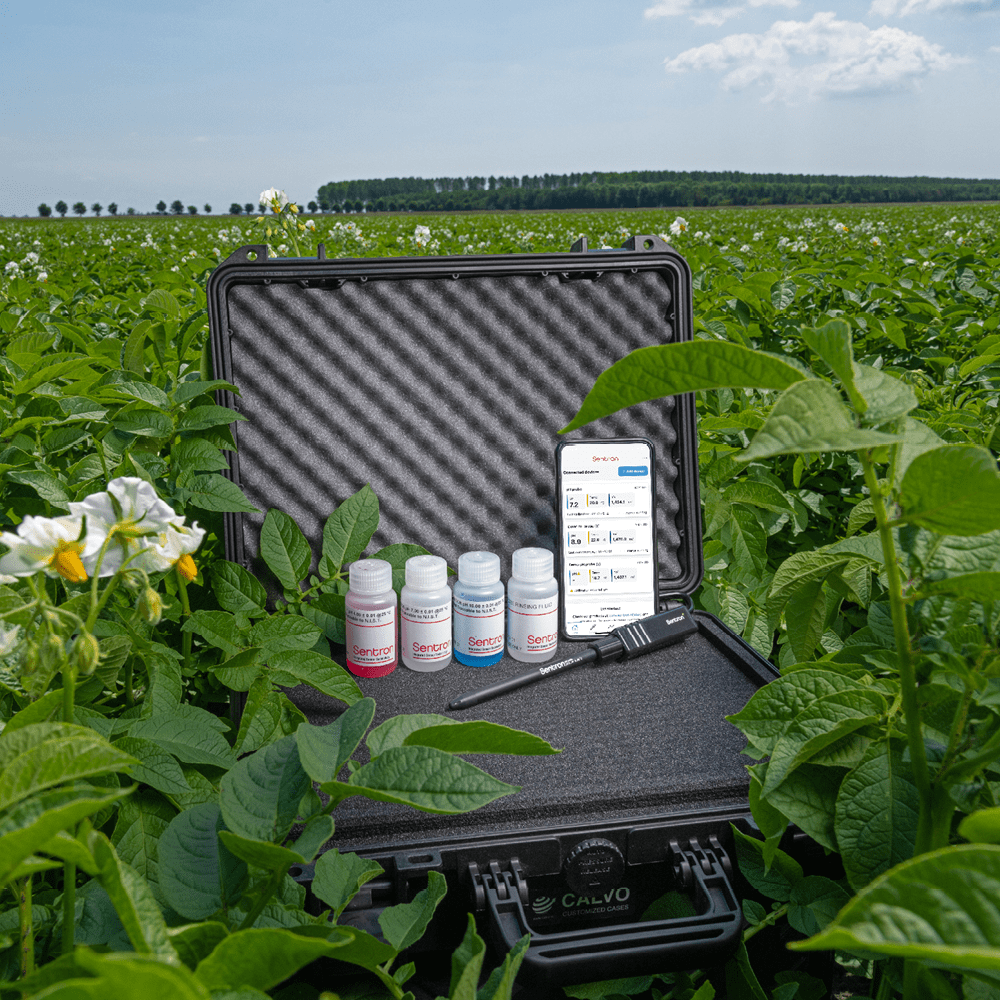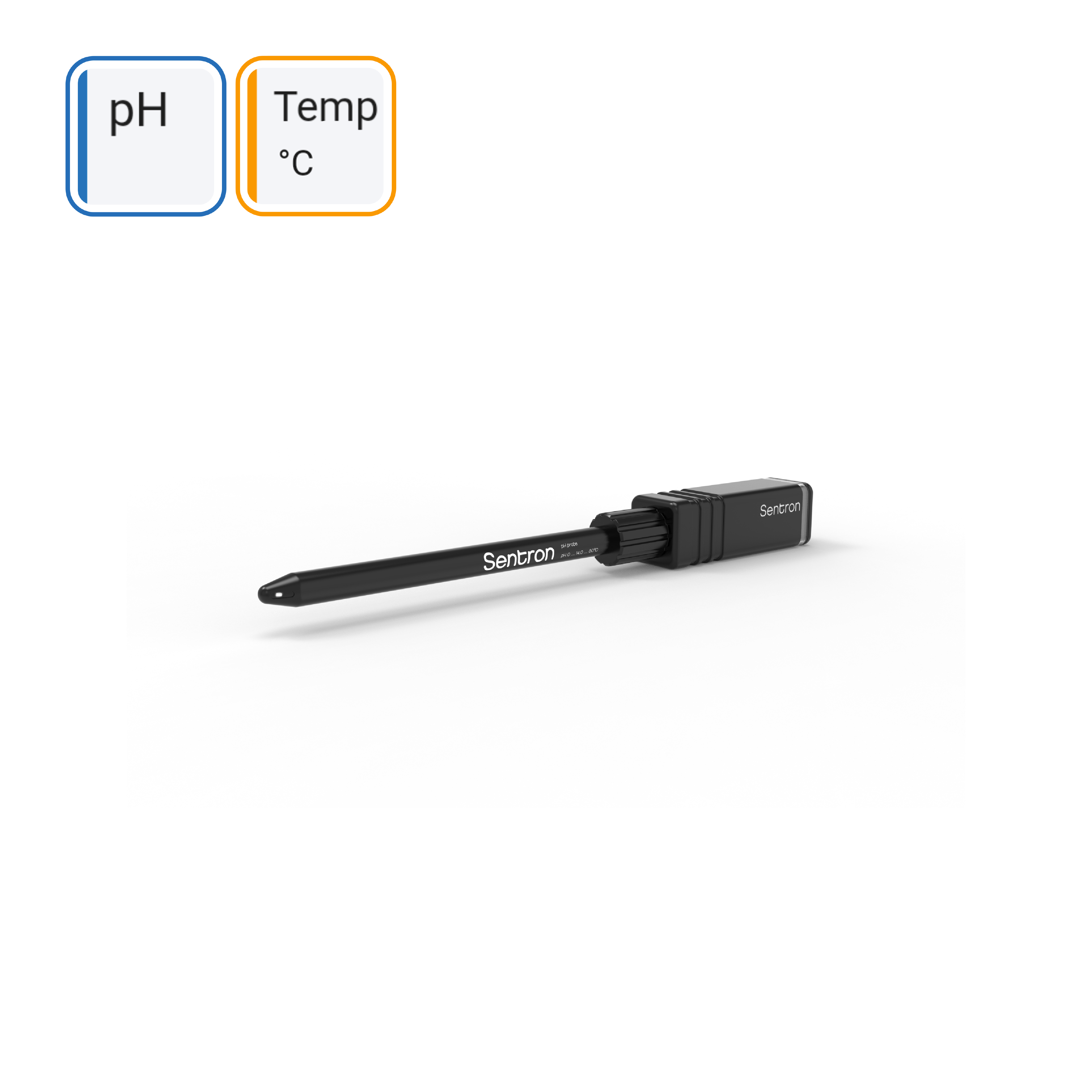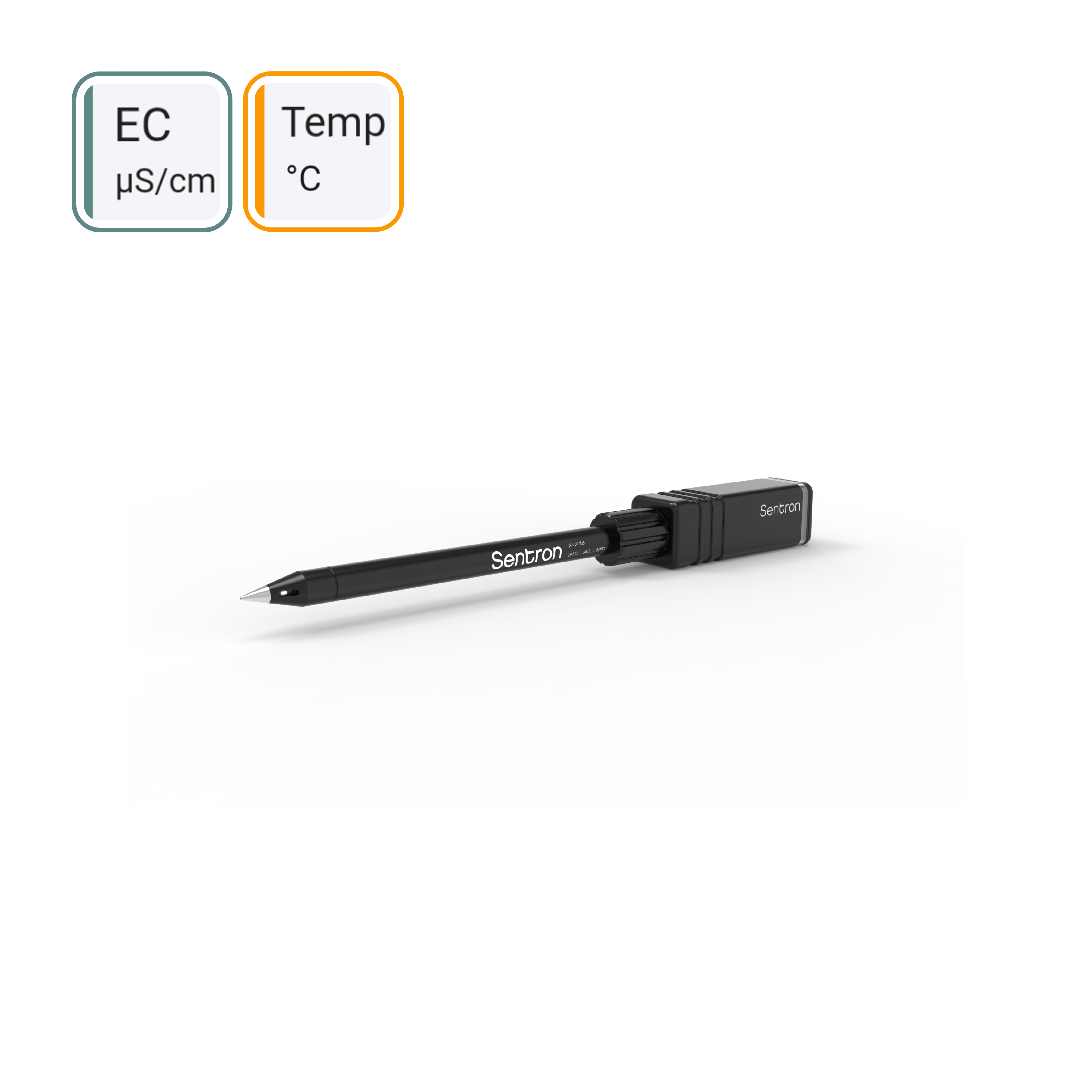ISFET pH meter for agriculture use
Agriculture varies from the home gardener to horticulture with commercial greenhouses. They all have a common thread: they sustain the world. Testing, monitoring and adjusting growth parameters help to maximize efficiency, quality and production. Sentron glass-free ISFET pH probes and the multiparameter probes for pH, conductivity and ORP are a good solution for this.
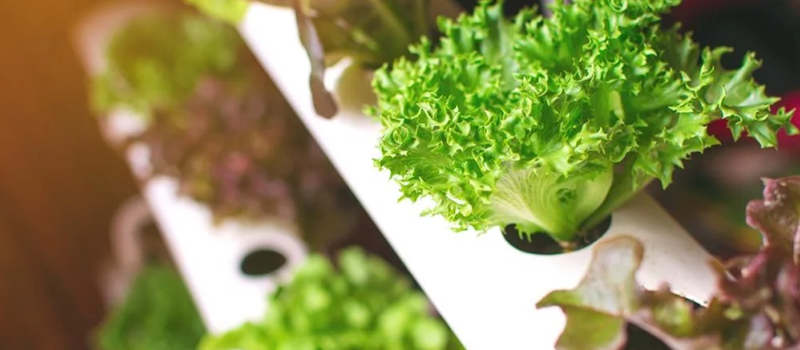
Agriculture
Agriculture varies from the home gardener to horticulture with commercial greenhouses. They all have a common thread: they sustain the world. Testing, monitoring and adjusting growth parameters help to maximize efficiency, quality and produce. The Sentron glass-free ISFET pH probes are a good solution for this.

Agriculture and pH
Soil pH – a Measure for Plant Health
Soil pH is a measure of the acidity or alkalinity of the soil. Having the correct pH is important for healthy plant growth as it reflects the chemical conditions. For example, the pH controls the availability of nutrients. The solubility of certain elements increases by lower pH levels, slowing down or stopping root growth. Also, biological functions, microbial activity, and the behavior of chemicals is controlled by the pH levels. Knowing this, it is wise to check the soil pH frequently.
Healthy Soil pH – Important for Various Markets
As the soil pH has influence on the plant growth, the importance to check and adjust it is important for many market segments. To name a few: crop growth and fruit for the food market, hemp for the industrial and medical market, grass/ hay for the horse market. All of these are affected by a suboptimal soil pH. Thus checking and adjusting pH is of great importance.
How to Perform Soil pH Measurements
In soils, the pH is measured in a slurry of soil mixed with distilled water. The LanceFET pH probe, thanks to its PEEK tip with stainless steel point, is perfectly suited for this piercing application. After predrilling a pilot hole in the soil the more generally used ConeFET probe with a blunt tip of PEEK and ABS can also be used to measure the pH in the soil.
The positions of the ISFET and reference electrode have been designed to be clog and pollution resistant. In the event debris has accumulated on the sensor it can be easily cleaned with running tap or demineralized water and soft toothbrush, which benefits the probe’s performance and prolonged life.
Agriculture pH package
For easy use, we have assembled a complete agriculture package. This package is all you need for wireless, durable pH monitoring in the field. The use of a smartphone provides easy use of the app. Multiple probes can be connected to the app for simultaneous readings. The required buffer solutions and pre-drill stick complete the package. The carry case protects the equipment and provides easy carriage and storage.
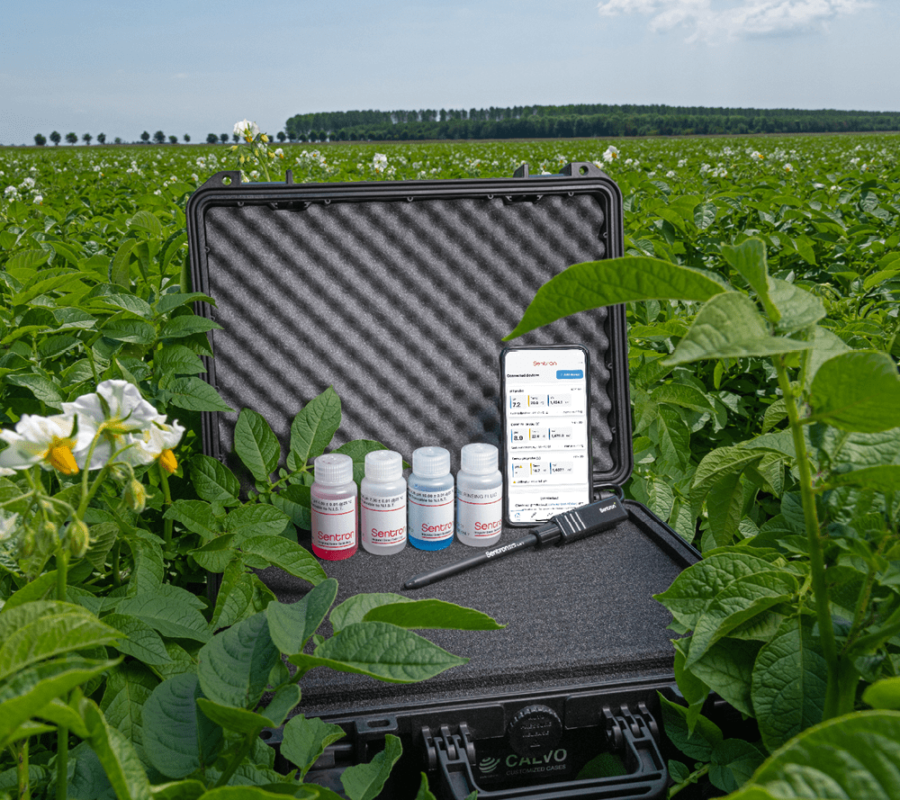
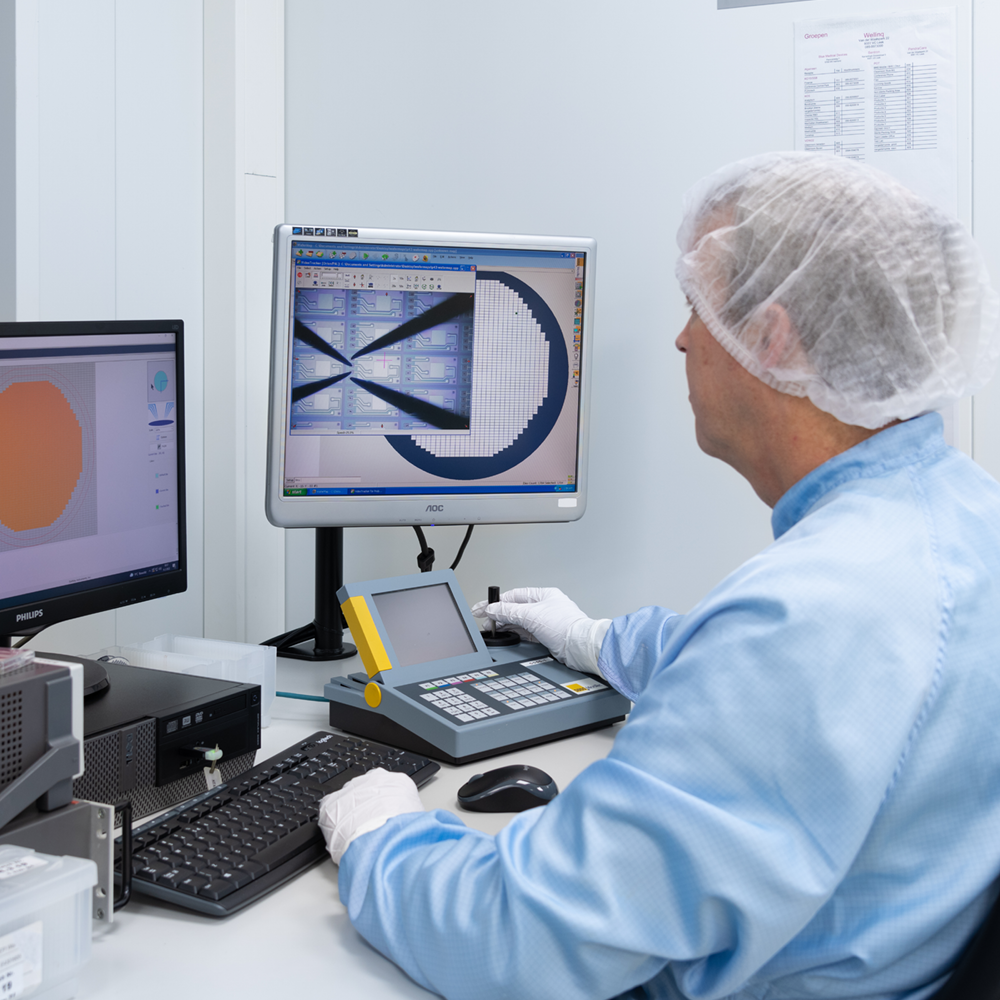
What’s next?
By taking a serious look at all applications, we keep entering into new innovations in our semiconductor production facility. Recently we launched the sensors for EC and ORP, with which great multisensor solutions for e.g. water monitoring can be provided.
Ion-Selective Sensors
We started innovative developments on ion-selective sensors that have a membrane mixture suitable for detection of different ions based on the ISFET technology. Selectivity is based on proprietary modifications with several polymer matrix configurations.
pH meter
Revolutionizing Agriculture: The ISFET pH Probe for Agriculture Use
pH plays a vital role in soil management and crop growth. The pH level of the soil affects the availability of nutrients, the activity of microorganisms, and the overall health and productivity of the plants. Traditional pH measurement methods involve using pH paper, which is time-consuming and inaccurate, or glass electrode pH meters, which are fragile and require regular calibration.
The ISFET pH meter for agriculture use offers an innovative and reliable solution to these challenges. In this article, we’ll explore the benefits of using the ISFET pH meter for agriculture use and how it’s revolutionizing agriculture.
What is an ISFET pH meter for agriculture use?
An ISFET pH meter for agriculture use is a pH measurement tool designed specifically for agricultural applications. It uses an ISFET sensor to measure the pH level of soil, water, and other agricultural samples. The ISFET sensor offers several advantages over traditional glass electrode sensors, including faster response time, wider pH range, and higher resistance to contaminants and electrolytes.
Advantages of ISFET pH meter for agriculture use:
Faster and Accurate Measurements: ISFET pH meters provide fast and precise pH readings, allowing farmers and researchers to make timely decisions about crop management.
Wider pH Range: The ISFET pH meter for agriculture use has a wider pH range than traditional glass electrode pH meters, allowing for more accurate measurements of soil pH.
Resistance to Contaminants and Electrolytes: The ISFET sensor is more resistant to contaminants and electrolytes than glass electrodes, ensuring more accurate measurements even in challenging agricultural environments.
Portability: Some ISFET pH meters for agriculture use are portable, making them ideal for use in the field.
Cost-effective: The ISFET pH meter for agriculture use is a cost-effective solution for pH measurement in agriculture compared to traditional methods.
The ISFET pH meter for agriculture use is a game-changer for farmers and agricultural researchers. It provides fast, accurate, and reliable pH readings, leading to better soil management and crop yields. With its wider pH range, resistance to contaminants and electrolytes, and cost-effectiveness, the ISFET pH meter for agriculture use is the best choice for pH measurement in agriculture.

